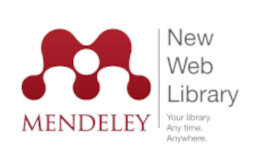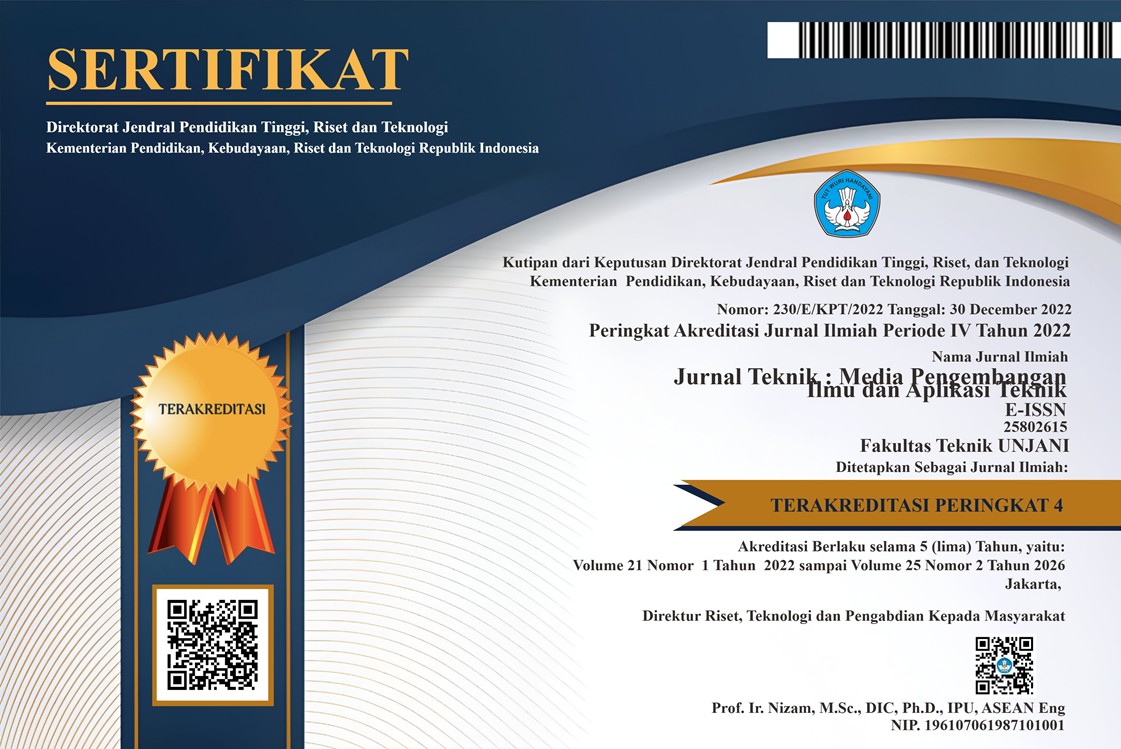Publication Ethics
Jurnal Teknik: Media Pengembangan Ilmu dan Aplikasi Teknik are publications containing research results in mechanical engineering, electrical engineering, chemical engineering, civil engineering, metallurgical engineering, industrial engineering that have never been published. Scientific publication ethics code statement created based on the head of LIPI regulation No. 5 2014 about scientific publication ethics code. The publication ethic codes is a norm that must be obeyed by writers who ell publish their scientific works in publication media, including:
- Moral: can differentiate good and bad attitudes in writing.
- Scientific Integrity: uphold the principles, nature, and scientific truth to not sacrifice it for any interest.
- Neutrality: free from conflicts of interest in the management of publications.
- Justice: Give the authorship rights to entitled as authors.
- Honesty: free from duplication, fabrication, falsification, plagiarism in publication.
Expressing and Conflict of Interest
Unpublished material in a submitted article may not be used in the editor's research without the author's written consent.
Duty and Responsibilities Chief Editors
- Set the journal name, scientific area, periodic, and accreditation if needed.
- Set the editor affiliation.
- Definition relationship between publisher, editor, peer-reviewer, and others.
- Appreciate the secret things suitable for the contributing researcher, author, editor, and peer reviewer.
- Implement norms and provisions regarding intellectual property rights, especially copyright.
- Review-journal policies and submit them to authors, editors, peer-reviewers, and readers.
- Create behavioural code guides for editors and review partners.
- Publish journals regularly.
- Ensuring the availability of funding sources for the sustainability of journal publications.
- Building a network of cooperation and marketing.
- Improve the quality of the journal.
- Prepare permits and other legal aspects.
Editor's Duties and Responsibilities
- The editor comments on the author's writing to understand what the author wants to convey through comments written on the article.
- The editor provides comments on the author's writing appropriate for the EBI (Indonesian Spelling language) or language appropriate for the standardisation of the journal.
- Editors strive to improve the quality of publications on an ongoing basis;
- The editor objectively prioritises freedom of opinion,
- Editor submits corrections, clarifications, withdrawals, and apologies if needed,
- The editor ensures that the author's writing does not involve SARA or anything that can harm the Publisher and coordinates the author's writing to the editor-in-chief of the Publisher if the article is slightly controversial.
- The editor receives, reviews, and follows up on complaints from all parties involved in publishing the journal;
- Editors support initiatives to educate researchers on publication ethics,
- Editors do not defend their own opinions, authors, or third parties, which may result in non-objective decisions,
- The editor encourages authors/writers to improve their written work so that it is worthy of publication.
- The editor lays out the articles to be published appropriately for the journal template.
- The editor assists the editor-in-chief in finalising a collection of articles before they are printed and published, especially in terms of language, format, and layout.
Peer reviewer Duties and Responsibilities
- Give objective and unbiased written feedback regarding the scientific value and contribution of articles to the development of science;
- Shows whether the writing of the article is clear, complete, and relevant and whether the article fits the scope of the journal;
- Do not give criticism or comments that are personal; and
- Maintain the confidentiality of the article by not discussing it with unrelated parties or disclosing the information contained in the article to other parties.
Authors ethics
The code of ethics that must be met by writers who will publish their scientific articles in Engineering Journals:
- Authors must uphold scientific conduct and understand published articles' benefits/advantages and risks.
- Articles published are free from misconduct, including fabrication, data falsification, and plagiarism/auto plagiarism.
- The author must include adequate citations to all statements, ideas, and data that are not his research result.
- Published articles do not cause conflict with particular parties or disturb the public.
- The authors listed in the published articles are genuinely competent and have significant contributions in writing the article.
- The author does not do the double publication of this article (double manuscript submission) to other journals or publications simultaneously (simultaneously).
- Part or all of the published articles have not been published in other publications.
- Published articles are the author's initial results of research, ideas, or thoughts.
If the article has been declared accepted, the author must fill out an Author Statement regarding the Code of Ethics for Scientific Publications, signed on stamp duty by the primary author. The letter can be downloaded here.











